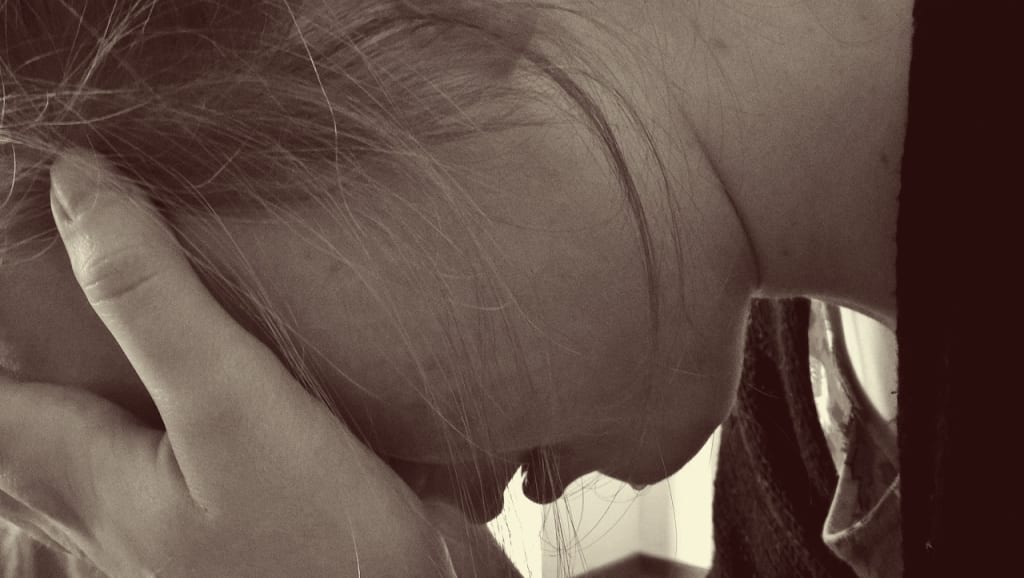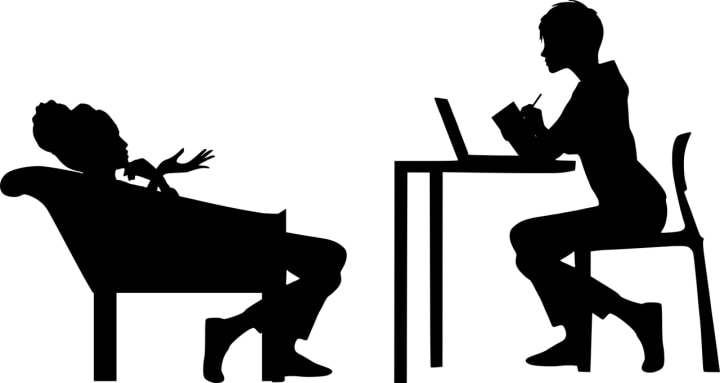Postpartum Depression
Advice from a Former Sufferer

Leaving the hospital without my baby, I believe, was the catalyst for the beginning of my postpartum depression. It was my second pregnancy and it was fairly normal until early in the third trimester.
After getting an ultrasound in the morning and helping serve meals at my church's spaghetti dinner, I climbed into bed exhausted. Around midnight, I woke to go to the bathroom and noticed a trickle of liquid down my legs. I thought I hadn't made it to the bathroom in time and was disgusted until I noticed it had no color or odor. I woke up my husband and thus began the longest week of my life.
I found myself life-flighted to John Hopkins and wound up bedridden for a week. After receiving medication to stop my contractions, antibiotics to ward off infection, and a drug to help the baby's lungs mature for that week, the doctors decided it was time for her to greet the world. She was born seven and a half weeks early, but thankfully came out breathing!
The day after her birth I was discharged, and I left the hospital with empty arms. It was one of the hardest things I have done. It felt wrong. Everything about leaving my daughter behind went against my instincts.
I made the two-hour drive every week and pumped my breast milk to bring with me, as she needed my immunity to help her immature body stay healthy. Before they could release her, she had to learn to feed and needed to gain a little weight. We all hoped she would be home for Christmas.
Rock or sing, don't do both.

A week or two before Christmas, we indeed did bring our daughter home with the only instructions to rock or sing to the baby, but to not do both. Her nervous system was still developing and couldn't handle too many stimuli.
I was elated to take her home, but I'd already noticed I felt different—a little distant from my newborn. I rationalized a bond would develop after she was home for a while. However, we weren't prepared for our daughter's needs.
With my son, natural instincts helped me know when to hold him, sing to him, pat his back, feed him, and leave him be. I couldn't do that with my daughter. I had to control my urge to rock and sing to her or remind myself not to move while she fed. And because her nervous system was underdeveloped, she cried—a lot—which meant I slept very little. My lack of sleep made me want to stay in bed. Getting up and getting dressed seemed like insurmountable tasks that I did not want to attempt. It was a recipe for disaster.
When I picked her up, there were many times I couldn't soothe her. I offered her a bottle, sang to her, rocked her, put her in her carseat, and did everything I could think of, but still, she cried.
Running on little sleep, alone most of the time with a crying baby and a preschooler, and developing a mild fever added fuel onto my already burning fire. I found myself sitting and staring more and more at the TV. Old hobbies that I once loved doing were no longer appealing: My paintings remained untouched, books unread, and knitting half finished.
One afternoon, I had a horrendous migraine and my daughter wouldn't stop crying—plus I had to pick up my son from preschool in a few hours. I badly needed rest. Nothing I did calmed her down. The pain built in my head and my stomach roiled, threatening to empty its contents. I put her back in her crib and tried to lay down after I took some medicine. Our walls are paper thin, and I heard her wailing. I tried putting her in the guest room which was at the other end of our house. I still heard her cries. I moved her several times, to different rooms, but nothing buffered me against her sobs. Each time I moved, my head pounded harder and my stomach churned.
As I sat on the couch, now with her carseat in front of me, her pitiful cries filling the living room, I held my head and sobbed along with her. I had no one to call—nowhere to go. Horrible thoughts raced through my head, images no mom willingly wants to think. The pain pounded my head and the shrieking stabbed my eardrums, while I stared at the living room window. Irrationally, I know now, I considered smashing my head through the living room window taking her with me—her crying would stop, and so would my pain.
Seek help.

Image by Mohamed Hassan via Pixabay
That thought was like a bucket of ice water over my body. I snapped out of it and took my daughter back to her crib, closed the door, and laid down on the couch to give the migraine medicine time to work. An hour later, the pain had subsided and so had my daughter's cries. I was then able to pick up my son from preschool.
The following week I found myself a therapist and he recommended medication. I'm not fond of medicine, but I didn't balk. This was too important and my thoughts had frightened me deeply. The first medicine did not work well and I had to try several different brands before I got one that suited me. I stayed on the medicine for well over a year and saw a therapist for several months. Eventually, I felt, as did the therapist, I was in a good enough place, mentally, that I could step down off the medication. That was over 16 years ago now. My daughter is 17, happy, healthy, and beautiful! My son is in college. My husband still loves me. Life is good. But had I ignored the signs, brushed off the thoughts thinking it would all go away, my life may have been quite different.
Today, I can recognize encroaching signs of depression and I urge loved ones or other mothers to be vigilant.
If you:
- cease doing those things you once loved doing,
- find you don't want to get out of bed or don't want to go to bed,
- find your eating habits changed to eating more or a lot less,
- have troubling thoughts that are not typical (harm to yourself or your baby or others), or
- feel hopeless or like you have lost control...
Then, it may be time to visit a therapist. Don't let your feelings and habits be ignored. So many changes come with motherhood and it affects each one of us differently. You don't have to wait for someone to notice your suffering or sadness before you seek help. My therapist told me, "Depression is feeling you have no control over your circumstances."
He suggested that I take control of the little things, to gain a sense of empowerment. Your first step could be contacting a counselor, therapist, psychologist, or family doctor. It's just important to actually make that first move. And it is hard because depression makes you feel like you don't want to do anything. You just want the sadness, the numbness, the anxiety to go away. The only way it can do that is to make a change and call in the experts.
If you know someone who exhibits signs of depression, you might want to reach out to them and support them in getting help. It's very hard to motivate yourself when getting out of bed feels like too much trouble. I'm very glad I had my wake-up call and it set me on a path toward better health.
About the Creator
D. A. Rhine
I'm an author of romance novels, acrylic artist, happy wife of 25 years, and a proud mother of two beautiful, brilliant young adults!






Comments
There are no comments for this story
Be the first to respond and start the conversation.